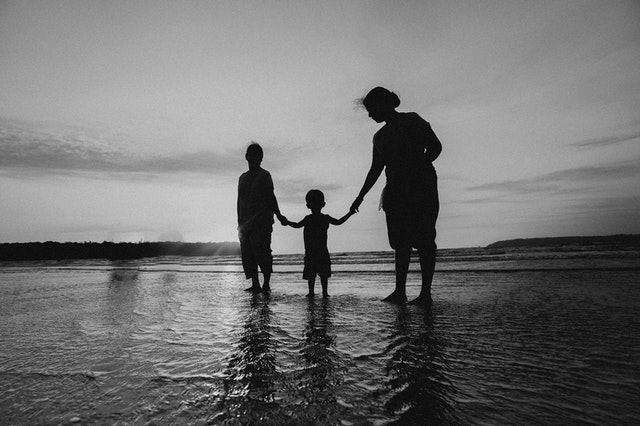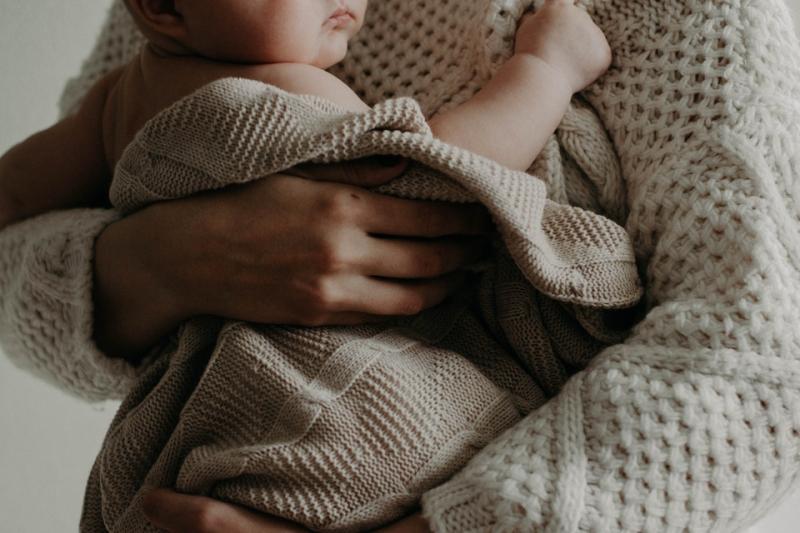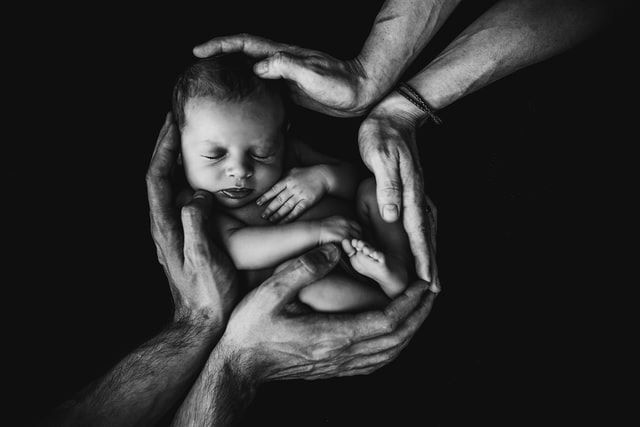Waitangi Tribunal on Oranga Tamariki recommends ‘Māori Transition Authority’
Mon 24 May 2021
The Waitangi Tribunal has released a pre-publication version of the final report on the urgent inquiry into Oranga Tamariki - Ministry for Children.

The Tribunal found a number of 'serious breaches' of te Tiriti/the Treaty by the Crown both before and after the 2017 legislative changes. The Tribunal's overarching recommendation is for the Crown to 'step back' and for a 'Māori Transition Authority' to be formed.
The Waitangi Tribunal inquiry examined the significant disparity between the number of tamariki Māori and non-Māori children taken into State care. The Tribunal noted in the report, He Pāharakeke, He Rito Whakakīkinga Whāruarua (2021), that:
"The disparity has arisen and persists in part due to the effects of alienation and dispossession, but also because of a failure by the Crown to honour the guarantee to Māori of the right of cultural continuity embodied in the guarantee of tino rangatiratanga over their kāinga."
The Tribunal wrote further that:
"It is more than just a failure to honour or uphold, it is also a breach born of hostility to the promise itself. Since the 1850s, Crown policy has been dominated by efforts to assimilate Māori to the Pākehā way. This is perhaps the most fundamental and pervasive breach of te Tiriti / the Treaty and its principles. It has also proved to be the most difficult to correct, in part due to assumptions by the Crown about its power and authority, and in part because the disparities and dependencies arising from the breach are rationalised as a basis for ongoing Crown control."
The Tribunal noted that the Crown has acknowledged that colonisation, structural racism and historical injustices have been significant contributors to the disparity. In addition, the Tribunal noted that the Crown has acknowledged it has failed to fully implement recommendations of the 1988 report Puao-Te-Ata-Tu.
However, the Tribunal disagreed with the Crown's view that the policy and practice changes introduced since 2017 will address the disparity and uphold te Tiriti / the Treaty and its principles, writing that "...we do not think the legislative policy and practice changes introduced since 2017 are sufficient to secure outcomes consistent with te Tiriti / the Treaty and its principles".
The Tribunal identified six ways in which the Crown had continued to breach te Tiriti/the Treaty since 2017:
- "by failing to partially repeal the subsequent child provisions;
- by continuing to operate an inequitable and asymmetrical model in respect of partnerships and procurement;
- by failing to oversee and consistently apply mechanisms for monitoring and accountability of social work practice, and by failing to apply best practices in terms of data collection and quality;
- by failing to meaningfully reform permanency policy;
- by failing to address persistent problems in the operation of family group conferences; and by inconsistent and unnecessary use of section 78 uplift protocols across a number of cases prior to mid-2019, and
- by failing to ensure that te Tiriti / the Treaty provisions in the Oranga Tamariki Act 1989 are effective and clear."
The Tribunal further wrote:
"Most significantly, however, it is our conclusion that any attempts to broadly reform the philosophy and operations of Oranga Tamariki – within existing parameters – will not succeed. While ameliorative measures may succeed in reducing disparity in certain areas for periods of time, we consider that unless the core precepts of the care and protection system are realigned, with power and responsibility returned to Māori, disparity will be a persistent feature of the system – as it has been prior to and since the release of Puao-Te-Ata-Tu."
In the Tribunal's concluding comments about the 2017 policy and practice changes, they wrote:
"While we agree wholeheartedly with the vision of Oranga Tamariki that no tamaiti Māori will need State care, it is not a vision Oranga Tamariki alone can hope to achieve. Not only will it require sustained and significant whole-of-government attention and resourcing, but also action from the non-government sector and iwi, hapū, and Māori whānau themselves."
In introducing their final recommendations the Tribunal wrote:
"It is clear to us that Māori must lead and direct the transformation now required. This is because the essential long-term solution lies in strengthening and restoring whanaungatanga. While the Crown has a significant ongoing role, this is not something that it can or should lead. Our primary recommendation therefore focuses on the formation of a ‘Māori Transition Authority’ that can lay the foundations, and then guide and implement the change."
The Tribunal calls for the 'Māori Transition Authority' to be independent of the Crown with a primary purpose to identify changes "...to eliminate the need for State care of tamariki Māori." They note it must be established as a priority and they recommend the Crown assist the Authority with information and advice, and sufficient funding and administrative support. They noted that the Authority should not be limited by current policy and practice settings and recommend "The brief given to the Transition Authority should include power to consider and recommend, where appropriate, transfer of statutory functions and responsibilities where sought by a particular Māori community or organisation."
The Tribunal also recommend the governance group from the Māori-led inquiry along with the inquiry claimants and their counsel are the group who should start engagement with the Crown on the formation of a Māori Transition Authority. In relation to the Crown's role, they called for genuine partnership and wrote "...partnership in this context looks very different from a conventional policy development process or use of an independent expert panel to advise government."
The Tribunal noted that they do not support calls for the abolition of Oranga Tamariki saying that they believe there is a role at this time for Oranga Tamariki in relation to tamariki Māori currently in care, and "...a role for an Oranga Tamariki statutory social worker – backed by the Crown’s coercive powers." However, who holds and uses such coercive powers should be considered as part of their recommended transformation process.
The Tribunal also noted that witnesses from the inquiry provided proposals for legislative change that are worth considering as part of the reform process. The Tribunal has included these in an Appendix to the report. In addition, the Tribunal agreed with Action Point 2 and 3 from the Māori-led inquiry report Ko Te Wā Whakawhiti: It's Time for Change - A Māori Inquiry into Oranga Tamariki (2020).
For a brief summary see the Waitangi Tribunal Media Release: Tribunal releases report on Oranga Tamariki.
Response to the Tribunal findings and report
Lady Tureiti Moxon, Chair of the National Urban Māori Authority who was a member of the Governance Group for the Māori-led Inquiry said “I am absolutely mind blown by it – because everything we’ve been pushing hard for in terms of ‘by Māori, for Māori’ or mana motuhake and an independent Māori Authority, has been validated.”
Te Pūtahitanga o Te Waipounamu Pouārahi/CE Helen Leahy said “Not since the release of Pūao Te Ata Tū in 1986 has there been such an exhaustive summary of the myriad ways in which tamariki Māori and their whānau are failed by the system. She also said "We remain committed to the ideal that whānau solutions work; that designing approaches which are intergenerational in their scope and encourage collective ownership, are the key to ensuring every child is loved, safe in their sense of identity and belonging, and able to be nurtured in the essence of who they are."
Oranga Tamariki has acknowledged the report. Oranga Tamariki Chief Executive Sir Wira Gardiner was interviewed (listen to the full interview) by Waatea News about his response to the report. Sir Gardiner said they would be reviewing the report to make recommendations to the Government. He went on to say he has been asked to prepare a road-map for the next 4-5 years for Oranga Tamariki that will be submitted to the Minister in June along with the report from the Oranga Tamariki Ministerial Advisory Board.
In response to the report, Children's Commissioner Judge Becroft said “The Tribunal’s findings are an historic acknowledgment of the harmful impact of structural and systemic racism and of the consistent calls from whānau for change since 1925. This is a once in a generation opportunity to get it right for mokopuna and whānau Māori. We urge the Government to take it.” Assistant Māori Commissioner Glenis Philip Barbara said "The call for the Crown to ‘step back from further intrusion and allow Māori to reclaim their space’ and take responsibility to lead the transformation is in itself, transformational." The Office of the Children's Commissioner has previously called for a "total transformation" for the care and protection system including "a transfer of responsibility, resources and power from the state to appropriate Māori entities" in their 2020 report, Te Kuku O Te Manawa: Moe ararā! Haumanutia ngā moemoeā a ngā tūpuna mō te oranga o ngā tamariki.
Newsroom has reported comments from Minister for Children Kelvin Davis and Te Pāti Māori co-leader Debbie Ngarewa-Packer among others.
Related news
The Abuse in Care Royal Commission of Inquiry is inviting submissions on what changes could be made to redress processes for survivors of abuse in care. Submissions can be made by email or phone by 16 June 2021. The Royal Commission interim report Tāwharautia: Pūrongo o te Wā (December 2020) outlines the Commission's current view of the main general principles required to make redress effective. The Commission is now interested in looking at options for an independent redress scheme, and other changes.
Related media
OT cuts court ‘uplifts’ but new carers out-of-pocket, Newsroom, 01.06.2021
Change in mindset needed for Oranga Tamariki reform, Waatea News, 03.05.2021
Under your thumb no longer says Dame Tariana, Waatea News, 03.05.2021
Oranga Tamariki's failings exposed, Stuff, 01.05.2021
Waitangi Tribunal Oranga Tamariki recommendations: What the experts say, RNZ, 30.04.2021
Oranga Tamariki: Waitangi Tribunal recommends Māori authority to reform system, RNZ, 30.04.2021
Oranga Tamariki has breached Treaty, Waitangi Tribunal finds, The Spinoff, 30.04.2021
Moxon looking for Maori mokopuna authority, Waatea News, 30.04.2021
Waitangi Tribunal backs shift of care to Maori from Oranga Tamariki, Waatea News, 30.04.2021
Crown to step down, Māori to step up: Oranga Tamariki breaches Treaty, NZ Herald, 30.04.2021
Tribunal to politicians: Watch Newsroom’s video, Newsroom, 30.04.2021
Removal of Māori children breached Treaty - Tribunal, Newsroom, 30.04.2021
Govt criticised over delays to Oranga Tamariki reform, Newsroom, 08.04.2021
Image: Jens Johnsson on Unsplash









